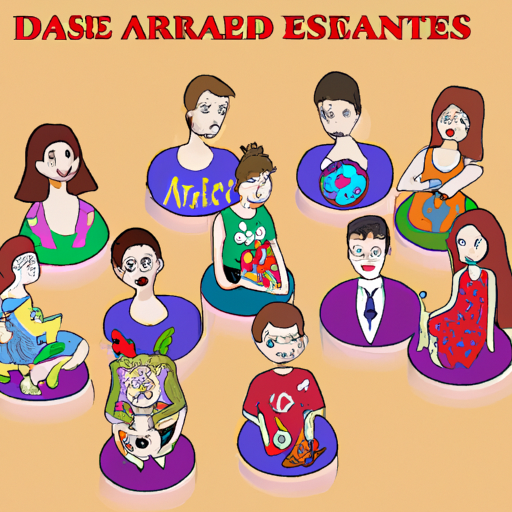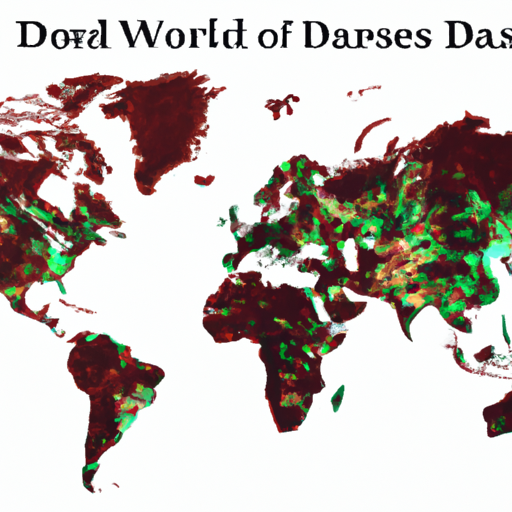This review meticulously explores the definition and implications of the term 'Rare Disease'. It delves into the complexities of the medical, societal, and global perspectives of rare diseases, illuminating the nuances that are often overlooked.
"Rare Disease": A Medical Perspective?
A rare disease, also known as an orphan disease, is defined by its low prevalence in the population. In the United States, a rare disease is classified as a condition that affects fewer than 200,000 individuals. These diseases often pose unique challenges for medical professionals due to their unfamiliarity and complexity. Diagnosis and treatment of rare diseases can be particularly challenging, as healthcare providers may have limited experience or resources available to address these conditions effectively. Additionally, the rarity of these diseases can lead to delays in diagnosis, misdiagnosis, or lack of appropriate treatment options.
Despite their individual rarity, collectively rare diseases affect a significant portion of the population worldwide. It is estimated that there are over 7,000 rare diseases identified to date, impacting millions of people globally. The diversity of rare diseases presents a wide range of symptoms, severity levels, and prognoses, making each case unique and requiring specialized attention. Medical research and advancements in genetics and technology have improved our understanding of rare diseases, leading to more accurate diagnoses and tailored treatment approaches. Collaboration among healthcare professionals, researchers, and patient advocacy groups is crucial in advancing the field of rare disease medicine.
למידע מורחב אודות Deciphering the Term: What Does 'Rare Disease' Really Mean? וspecialty pharmaceutical companies נא לגלוש לאתר truemedtx.com

An illustration of various rare diseases represented as puzzle pieces.
The Societal Impact: How Rare are 'Rare Diseases'?
While individually rare, the collective impact of rare diseases on society is substantial. With over 300 million people affected globally, rare diseases are more prevalent than commonly perceived. The burden of rare diseases extends beyond the individual level, affecting families, communities, healthcare systems, and economies. In the United States alone, rare diseases are estimated to affect approximately 25-30 million people, underscoring the need for increased awareness and support for this population. Despite their low prevalence, rare diseases account for a significant portion of healthcare expenditures, as patients often require specialized care, therapies, and interventions.
The societal impact of rare diseases is multifaceted, encompassing economic, social, and healthcare dimensions. Families of individuals with rare diseases often face financial strain due to high medical costs, limited insurance coverage, and the need for ongoing care and support services. Additionally, the emotional toll of managing a rare disease can lead to stress, anxiety, and isolation for patients and their loved ones. Rare diseases also pose challenges to healthcare systems, as the limited number of cases and specialized expertise required can strain resources and impede timely diagnosis and treatment. Addressing the societal impact of rare diseases necessitates a holistic approach that involves collaboration among stakeholders, advocacy for policy changes, and increased research and funding to support individuals affected by these conditions.
Is 'Rare Disease' a Global Issue?
Rare diseases transcend geographical boundaries and affect individuals worldwide, making them a truly global issue. While the specific rare diseases prevalent in different regions may vary, the challenges faced by patients and their families are universal. Limited access to diagnosis, treatment, and support services is a common issue across countries, particularly in low-resource settings where healthcare infrastructure may be inadequate. Additionally, the lack of awareness and expertise surrounding rare diseases can lead to diagnostic delays and mismanagement of conditions, further exacerbating the burden on patients and their caregivers.
In many parts of the world, the prevalence of rare diseases is underestimated due to underreporting, misdiagnosis, and lack of systematic data collection. This poses significant challenges for policymakers, healthcare providers, and researchers in addressing the needs of individuals with rare diseases on a global scale. International collaboration and information sharing are crucial in improving the understanding of rare diseases and developing effective strategies for diagnosis, treatment, and support. Organizations such as the World Health Organization (WHO) and rare disease advocacy groups play a vital role in raising awareness, promoting research, and advocating for policies that prioritize the needs of individuals with rare diseases worldwide. Efforts to address the global impact of rare diseases require a coordinated and concerted approach that transcends borders and fosters inclusivity and equity in healthcare delivery.

A world map highlighting countries with high rates of rare diseases.
"The Patient's Perspective: Does 'Rare' Mean 'Neglected'?"
From the patient's perspective, the term 'rare disease' can often evoke feelings of isolation, frustration, and neglect.
- **Lack of Awareness and Understanding**:
One of the key challenges faced by individuals with rare diseases is the pervasive lack of awareness and understanding among the general public, healthcare providers, and even within their own social circles. The rarity of their condition can lead to misconceptions, stigmatization, and a sense of being misunderstood or overlooked. This lack of awareness can also impact the quality of care and support available to patients, as healthcare professionals may have limited experience or knowledge about managing rare diseases. - **Limited Research and Treatment Options**:
The rarity of their condition can pose significant obstacles for patients in accessing appropriate diagnosis, treatment, and ongoing care. Research into rare diseases may be underfunded or limited, resulting in a scarcity of evidence-based guidelines and therapeutic options. This can leave patients feeling marginalized and left to navigate complex healthcare systems on their own, often with little guidance or support.
In conclusion, the term 'Rare Disease' encompasses a broad spectrum of illnesses, each with its unique set of challenges. Understanding these intricacies is paramount in advancing medical research and improving patient care.

